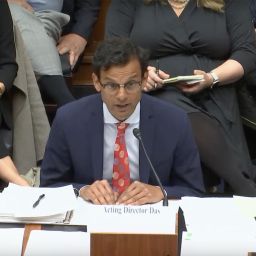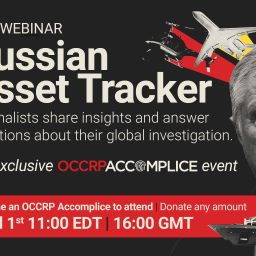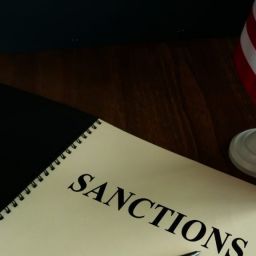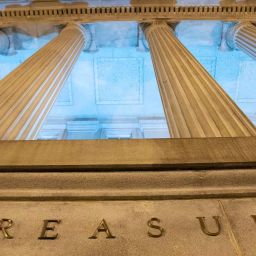In the early hours of 15 March 2022, the Economic Crime (Transparency and Enforcement) Act (the “Act“) received royal assent. The rapid passage of the Act through the UK Parliament, after years of delays, came in response to Russia’s invasion of Ukraine in February 2022. The Act is, in part, fulfilment of long-awaited provisions intended to “improve transparency about who owns overseas entities that own land in the UK and to act as a deterrent to people who may try to launder money” and also part of the UK’s strategy, in particular through enhancements to the UK’s sanction regime, to move more swiftly to designate those people identified as playing a part in the invasion of Ukraine.
While the primary target of the Act is, in the words of UK Home Secretary Priti Patel, the “mob of oligarchs and kleptocrats who have abused the financial system and the rule of law for too long”,1 corporate transparency reformers have been disappointed, especially with the Register of Overseas Entities, that where property is held through complex offshore structures involving nominees, the ultimate individual beneficial owner still avoids proper identification. However, in practice, and following amendments made through Parliament, a number of the Act’s provisions will have a significant impact on those who manage offshore structures and their clients by strengthening individual accountability and increasing exposure to reputational, civil, and criminal litigation risk.
This article examines the effect the relevant provisions of the Act will have on the fiduciary services sector and administrators of overseas entities which own property in the UK.
Part 1: Register of Overseas Entities (the “ROE”)
The Act will create an ROE administered by Companies House, which will require overseas entities purchasing UK property to publicly register their identities as well as the identities of the beneficiaries of the overseas entity. This particular reform is long-awaited – it was first described as one of many “groundbreaking commitments that can really transform [the UK’s] ability to tackle corruption” at an anti-corruption summit in 2016 by then Prime Minister David Cameron.
In effect, the new ROE will mirror the existing register of “people with significant control” (“PSC“) that was created in 2016 for UK entities pursuant to the Small Business Enterprise and Employment Act 2015. Now all legal non-UK entities that own or wish to own UK land (commercial or residential, leasehold or freehold) will need to register with Companies House, take reasonable steps to identify its registrable beneficial owners and provide the information specified (in section 4 and Schedule 1 of the Act) about these beneficiaries.
The various conditions for what defines a “registerable beneficial owner” are set out in Schedule 2 of the Act and include individuals who hold more than 25 percent of the shares or voting rights in the overseas entity or have some other significant influence or control over it (including through a trust or partnership structure). Significant influence and control is not defined in the Act; however, statutory guidance in relation to the concept within the PSC regime offers insight into its meaning. The guidance illustrates significant influence and control may be exercised by a shadow director of a company, for example, or by a company founder whose recommendations are generally followed by shareholders. While not new for UK companies, the question of whether any individuals exercise significant influence or control over an entity’s operations will require careful assessment by overseas entities in their identification of beneficial owners under the Act.
One important amendment made to the Bill during its passage through Parliament was to the disclosure requirements where the registerable beneficial owner of an entity is a trust. In such cases, the name of the trust, date of creation, and information about the settlor, beneficiaries, and protectors must all be disclosed. The requirements relate to each beneficiary and, significantly, any person who has been “at any time” a registrable beneficial owner of the overseas entity (irrespective of whether the terms of the trust have changed). There is a variety of personal information that is excluded from public inspection, including information about trusts (subject to the provisions in section 23), which will only be available to the tax authorities. This scheme starts to signal what the government hopes can be achieved fiscally by the ROE.
The ROE will apply to all future property purchases and retrospectively to property bought since January 1999 in England and Wales and since December 2014 in Scotland. There will be a transitional period of six months for overseas entities to register their beneficial owners with Companies House. In order to prevent the beneficial owners from avoiding disclosure during this period, all dispositions in this period will still be required to provide the beneficial information required by section 4 (above).
There are a limited number of exemptions that may exempt an overseas entity from disclosing its beneficial owners, namely the interest of national security and the purpose of preventing and detecting serious crime. These exemptions were hotly debated in Parliament and led to the removal of the disclosure exemption where it was in the “economic well-being of the UK”. It is difficult to see how any of these exemptions will apply to residential UK property ultimately owned by private individuals.
The extent to which Part 1 of the Act will achieve one of its stated purposes of revealing the beneficial owner of the property and thereby preventing criminals from hiding behind secretive chains of shell companies has been questioned in the House following the circulation of a briefing paper drafted by the Chartered Institute of Taxation.2 It was noted, that rather than ensuring that a property’s ultimate beneficiary is revealed, the Act requires that the beneficial owner of the overseas entity that holds legal title to the property is identified. Therefore, where an overseas nominee company, managed and beneficially owned by a fiduciary services firm, holds (on behalf of others) the legal ownership of property, the true beneficial owner will not be registerable. This lacuna in the new provisions was debated vigorously and may be addressed in the follow-up economic crime bill due to be introduced to Parliament in around early summer 2022. If a gap is being exploited, the Act allows for the application requirements to be modified by secondary legislation. Moreover, until further reforms are instigated, which will require Companies House to verify the identity of those individuals being added to register and give it power to take enforcement action, critics argue that these provisions will not deter truly corrupt actors from providing incorrect information to Companies House.
A range of offences have been created for officers of an overseas entity that fail to adhere to the disclosure provisions. For instance, where an entity fails in its duty to update the ROE, the entity and every defaulting officer will be liable to a daily default fine or a sentence of up to 5 years. It is also an offence for a person “without reasonable excuse” to make a “misleading, false or deceptive” statement. As well as being used by investigating enforcement authorities, we anticipate that the ROE will provide useful information for claimants conducting asset tracing in support of legal claims. Therefore, managers of overseas structures should prepare themselves for closer scrutiny of their operations.
Part 2: Unexplained Wealth Orders Regime
Part 2 of the Act aims to strengthen the Unexplained Wealth Orders (“UWO“) regime, which has fallen out of favour with UK enforcement authorities since UWOs obtained by the NCA were discharged in 2020. To recap, UWOs and interim freezing orders were inserted in the Proceeds of Crime Act 2002 by the Criminal Finances Act 2017. UWOs are an investigatory order requiring a respondent whose assets appear disproportionate to their income to explain the origins of their wealth. The respondent must be a politically exposed person (“PEP“) or reasonably suspected of involvement in, or of being connected to a person involved in, serious crime, and the enforcement authority must demonstrate reasonable grounds to suspect that the known sources of a respondent’s income would be insufficient for them to obtain the property (the “income requirement“). UWOs were introduced to assist enforcement authorities to obtain information about the ownership of UK property, especially where the foreign state refused to provide support to UK enforcement and assist with civil recovery of the property where the respondent did not provide the information required, and it could be shown, on the balance of probabilities, that the property was obtained by unlawful conduct.
The limitations of the UWO regime in dealing with offshore structures became apparent in 2020 when the High Court dismissed UWOs obtained by the NCA against Andrew Baker, a professional trustee, and various offshore entities.3 The NCA had obtained three UWOs in respect of UK property owned by a number of offshore companies and Panamanian Foundations of which Mr. Baker was the President, but which were ultimately said to be bought by laundered money from the proceeds of unlawful conduct committed by Rakhat Aliyev, a Kazakh PEP. Notwithstanding the various investigative errors made by the NCA, the case highlighted the shortcomings of the regime to penetrate complex overseas structures, not least because the income requirement is an inapt test where the respondent to a UWO is an offshore entity “holding” the property on trust for the beneficiary rather than the President (or manager or officer) of the entity, as with Mr. Baker.
The Act now inserts an additional and alternative test to the income requirement that enforcement authorities can use to obtain an order, namely that they have reasonable grounds for suspecting that the property has been obtained through unlawful conduct. This amendment will provide enforcement authorities with more flexibility and make it easier to obtain an order. Importantly for those who administer UK property through offshore entities, and to deal with the insurmountable issue that arose in Baker, the Act introduces a new category of individuals, termed “Responsible Officers” (typically directors or managers), who can be respondents to an order where the respondent is not an individual. These individuals will be equally subject to an obligation to provide the information sought by the authorities where the responsible officer is not the property holder. In addition, following the very significant costs order that the NCA received in Baker, the unsuccessful enforcement authority will not be exposed to a cost order unless they have used the powers unreasonably, improperly, or dishonestly. This should increase the NCA’s risk appetite and operational confidence in applying for UWOs.
Part 3: Sanctions reform
The final substantive overhaul, proposed by Part 3 of the Act, is to toughen up the UK sanctions regime and make it easier for the UK to move quickly to designate individuals or entities. While these provisions are not as relevant to administrators of offshore structures, they should be aware that:
- The sanctions designation process in the Sanctions and Anti-Money Laundering Act 2018 (“SAMLA“) has been streamlined to allow the Office for Financial Sanctions Implementation (“OFSI“) to make urgent designations of individuals and to piggy-back off designations already made by other governments. This means that the UK can mirror sanctions already imposed by the US, EU, Australia and Canada; and
- Their liability for making innocent mistakes in dealing with a designated person or the funds and economic resources that are controlled by entities connected to them has increased. The Act now provides for the imposition of civil fines on a strict liability basis, i.e., there is no requirement to show that in breaching a prohibition, the person knew, suspected, or believed they were in breach.
Shortly after the Act received royal assent on 15 March, and as a direct consequence of the mirroring designation powers in the Act, the foreign secretary announced 370 new Russian and Belarussian sanction designations. While the new provisions do not alter the powers the enforcement authorities have to forfeit or confiscate frozen funds and property, again disappointing reformers, this may be an area that is addressed in the next economic crime bill.
Comment
- The reforms provided by the Act intended to reignite enforcement efforts against the flow of dirty money and the abuse of the UK property market by oligarchs and kleptocrats, will have a significant impact on fiduciaries who manage overseas structures. Nevertheless, as was repeatedly raised during the debate stages of the Bill, the question remains whether the NCA, OFSI, and the UK’s other enforcement authorities have the necessary resources to deliver on the Government’s robust agenda. Critics of the Government’s agenda have highlighted that enforcement authorities have had access to a wide array of legislative enforcement tools to target and counter illicit wealth for several years, but resources to utilise such tools have dwindled considerably. The NCA’s own International Corruption Unit (the “ICU“), which is specially configured to investigate kleptocrats, has had its budget slashed by 13.5 percent this year.4 Whether and how the proposed new NCA kleptocracy cell will engage with the existing enforcement authorities (including the ICU) remains to be seen and prompts the question of whether adding another task force in an underfunded landscape will be effective to “operationalize” (in the words of Priti Patel) the Act.
- While flaws have been identified in the Act, particularly in relation to the robustness of the ROE scheme, the Government has assured the House that new legislation is being drafted to address these deficiencies, including a comprehensive reform of Companies House. The Government’s most recent thinking was outlined in a February 2022 White Paper.5 The war in Ukraine is causing unprecedented momentum for economic crime reform, and it may be that the follow-up economic crime bill, likely to be introduced to Parliament shortly, will be one of the most radical pieces of legislation aimed at kleptocratic regimes. As a result, these reforms are also likely to have significant implications for the continued good governance and management of overseas structures diligently run by fiduciaries and trustees.
Footnotes
2 6 March 2022 Briefing for Parliamentarians from the Chartered Institute of Taxation
3 National Crime Agency v Andrew J. Baker and Others [2020] EWHC 822 (Admin)
5 The February 2022 White Paper
Original source of article: www.mondaq.com/uk












